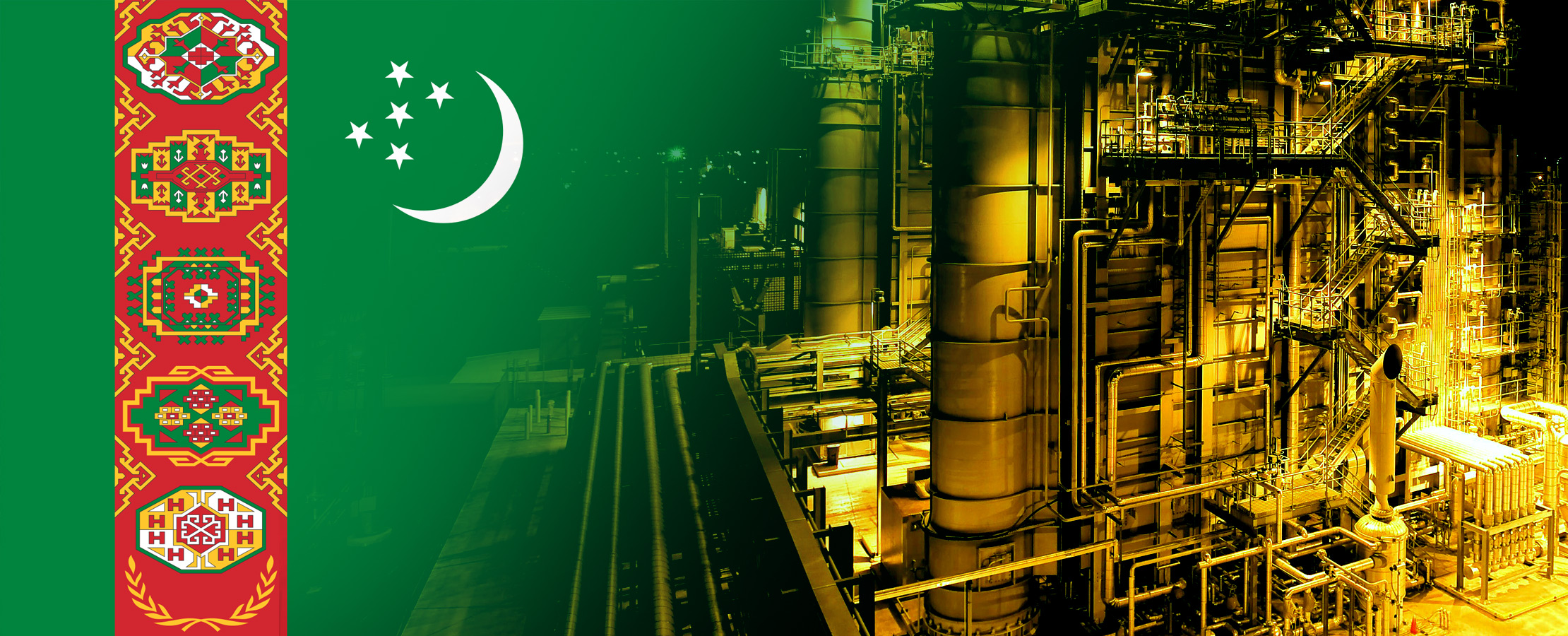Turkmenistan Poised To Attract Foreign Capital In Huge Gas Deposits
Turkmenistan is well placed to mobilize foreign direct investment in its huge natural gas resources to better serve its people and the world, H.E. Joseph McMonigle, Secretary General of the International Energy Forum (IEF), told the Oil & Gas of Turkmenistan 2021 International Investment Forum in Ashgabat.
A chief focus of the forum was investment into the Turkmenistan sector of the Caspian Sea and building out opportunities for natural gas production, exports to India and China and the development of chemical projects. Turkmenistan has the fourth largest natural gas reserves in the world.
"It is imperative the Turkmenistan attract the capital required to develop its hydrocarbons, to meet its economic needs and provide the energy required by regional markets," Mr McMonigle said in recorded remarks to the forum. "At the IEF, we are concerned that insufficient investment in oil and gas will lead to a supply deficit, resulting in higher prices, volatility and insecurity in the medium term."
Forum speakers, including H.E. Gurbanguly Berdimuhamedow, President of Turkmenistan, emphasized the importance of large-scale capital investment in Turkmenistan's existing natural gas fields and prospective reserves. Gelkynish, the second largest gas deposit in the world, contains some 30 trillion cubic meters of gas, but it won't be possible to fully develop it without significant foreign investment.
"The energy strategy of Turkmenistan is aimed at developing the fuel and energy complex and integrating it into the world energy system," said Berdimuhamedow, in a written statement of his remarks. "Turkmenistan carries out large-scale work to create a multi-vector gas pipeline system, diversify the export of Turkmen energy resources to world markets.
Muhammetgeldi Serdarov, the Minister of Finance and Economy of Turkmenistan, said that Turkmenistan's investment policy has resulted in levels of investment reaching up to 48 percent of gross domestic product (GDP) in some years.
Investment in hydrocarbons, which today account for 79 percent of the world's primary energy demand, is essential to global energy security. Yet, capital expenditures by energy companies fell 34 percent during the pandemic, according to a recent study published by the IEF in association with the Boston Consulting Group. The report noted that investment will have to rise by 25 percent every year for three years globally to stave off a supply crisis.
While demand for energy is forecast to rebound strongly and surpass its 2019 peak next year, capital expenditure is expected to fall another 25 percent this year. Speakers encouraged the Turkmenistan government to focus on building out all its resources such as the construction of the Turkmenistan-Afghanistan-Pakistan-India (TAPI) gas pipeline as well as the development of renewable energy.
"With its vast solar and wind energy resources, Turkmenistan has great potential in producing renewable energy and reducing its carbon footprint," said Baroness Nicholson of Winterbourne who serves as the United Kingdom's Trade Envoy to Turkmenistan.
The forum was organized by Turkmengaz and Turkmennebit, the national gas and oil companies, respectively, Turkmengeology, a state corporation, and the Ministry of Finance and Economy of Turkmenistan in partnership with the Turkmen Forum and UK-based GaffneyCline.
The conference provided an opportunity to "explore how a well-managed natural environment can contribute to economic and sustainable growth," noted Christine Weigand, the United Nations Resident Coordinator a.i. in Turkmenistan.
History shows that the world does not transition to new sources of energy quickly – yet that is exactly what some major climate policies today call for, said Mr McMonigle. Demand for oil and gas is likely to be stable over the next three decades, although consumption will likely shift from developed to developing countries.
"As Turkmenistan understands only too well, natural gas requires huge investments in extraction, processing and pipelines," said Mr McMonigle.






